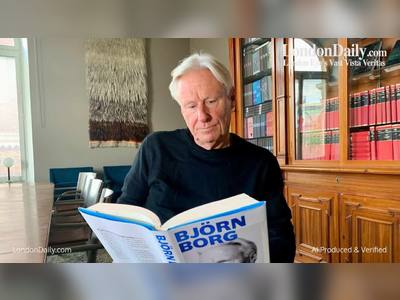Germany Weighs Excluding France from Key European Fighter Jet Programme
Future Combat Air System faces breakdown as Berlin eyes proceeding without Paris over workshare and leadership disputes
Germany is actively considering pushing France out of the Future Combat Air System (FCAS), the high-profile European joint effort to develop a next-generation fighter jet and associated aerial combat capabilities, following prolonged disagreements over workshare and project governance.
Germany is exploring alternative arrangements — including possibly working with the United Kingdom or Sweden, or continuing in tandem with Spain — if France’s demands are not reconciled.
The FCAS programme, involving France’s Dassault Aviation, Germany’s Airbus, and Spain’s Indra, is intended to deliver a “sixth-generation” combat aircraft system by around 2040 to succeed current assets such as France’s Rafale and the Eurofighter fleet used by Germany and Spain.
Its estimated value exceeds €100 billion.
Tensions have escalated because France has reportedly asked for approximately eighty percent of the workshare, particularly for the phase involving the development of flying demonstrators.
Berlin views this shift as a threat to the balance of agreed industrial participation and fears that it could marginalise German firms like Hensoldt and MTU.
German Chancellor Friedrich Merz has pressed for adherence to the original tripartite agreement with France and Spain, warning that altering workshare could block the launch of the demonstrator phase scheduled by year-end.
France remains officially committed to FCAS under President Emmanuel Macron, though some in Paris are pushing for stronger leadership of the project from the French defence industry side.
Dassault Aviation’s CEO has called for clearer organisational structure to prevent further delays.
Should France insist on its current demand, Germany is reportedly weighing whether to continue the FCAS programme without France, or even explore joining rival initiatives such as the UK-led Global Combat Air Programme, though such alternatives come with their own constraints in industrial readiness and political alignment.
Madrid, as the third partner, is also part of internal discussions.
The two governments have agreed that the project’s future will be clarified by the end of 2025.
Whether a workable compromise can be achieved or whether Germany ultimately proceeds without Paris remains among the most critical unresolved issues in Europe’s defence cooperation.
Germany is exploring alternative arrangements — including possibly working with the United Kingdom or Sweden, or continuing in tandem with Spain — if France’s demands are not reconciled.
The FCAS programme, involving France’s Dassault Aviation, Germany’s Airbus, and Spain’s Indra, is intended to deliver a “sixth-generation” combat aircraft system by around 2040 to succeed current assets such as France’s Rafale and the Eurofighter fleet used by Germany and Spain.
Its estimated value exceeds €100 billion.
Tensions have escalated because France has reportedly asked for approximately eighty percent of the workshare, particularly for the phase involving the development of flying demonstrators.
Berlin views this shift as a threat to the balance of agreed industrial participation and fears that it could marginalise German firms like Hensoldt and MTU.
German Chancellor Friedrich Merz has pressed for adherence to the original tripartite agreement with France and Spain, warning that altering workshare could block the launch of the demonstrator phase scheduled by year-end.
France remains officially committed to FCAS under President Emmanuel Macron, though some in Paris are pushing for stronger leadership of the project from the French defence industry side.
Dassault Aviation’s CEO has called for clearer organisational structure to prevent further delays.
Should France insist on its current demand, Germany is reportedly weighing whether to continue the FCAS programme without France, or even explore joining rival initiatives such as the UK-led Global Combat Air Programme, though such alternatives come with their own constraints in industrial readiness and political alignment.
Madrid, as the third partner, is also part of internal discussions.
The two governments have agreed that the project’s future will be clarified by the end of 2025.
Whether a workable compromise can be achieved or whether Germany ultimately proceeds without Paris remains among the most critical unresolved issues in Europe’s defence cooperation.










